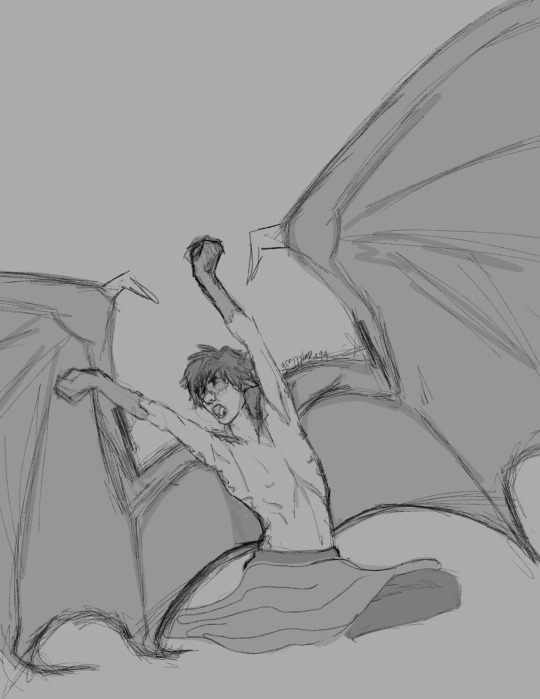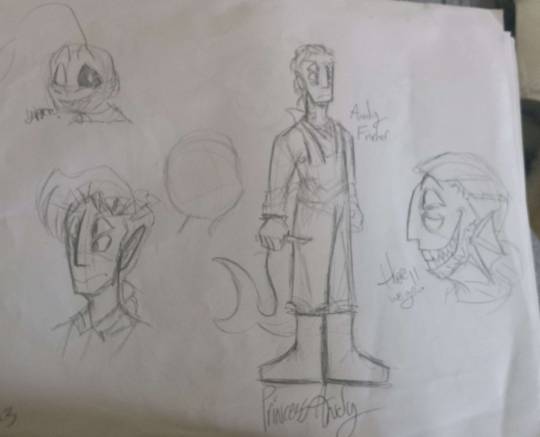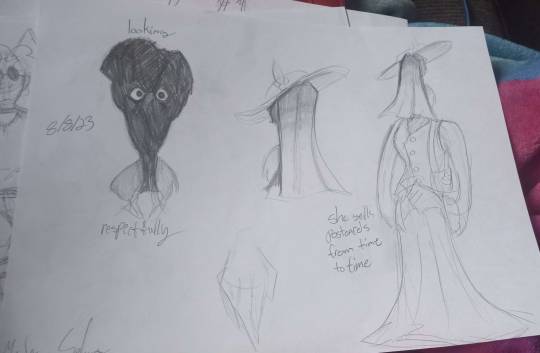#feign
Explore tagged Tumblr posts
Text
Streeeeetch

I draw when I procrastinate and it seems I have writer’s block
#httyd#how to train your dragon#httyd fandom#httyd hiccup#httyd rtte#hiccup horrendous haddock iii#httyd fanart#httyd race to the edge#httyd fanfiction#can you tell this was challenging#it’s a sketch but oof it took too long#and does it even look ok??#lol oh well I posted#it better look ok bc I had a terrible day today#which was my own fault#I’m being too honest in the tags#who cares lol#feign#lycanwing
260 notes
·
View notes
Text
HELLO PETROJVIC BLASTING COMPANY FANS (3 people)
I HAVE FOOD.
theyre all in order from the album!!






#art#oc artwork#the blasting company#into the descent#oc art#The Petrojvic Blasting Company#feign#based off of songs#giggles#:3
23 notes
·
View notes
Text
Feigning concern or innocence is a classic weapon in a narcissist's arsenal, and they wield it with calculated precision. By pretending to care, they manipulate the emotions and perceptions of people close to them, bending reality to suit their desires. They make people doubt their own instincts, often using selective kindness or sudden empathy to disarm those who question them.
Imagine a friend or partner who dismisses your concerns as irrational one moment, only to turn around and shower you with attention when it serves them. This hot-and-cold behavior makes you feel cherished but confused, making it hard to see through their manipulation. When they act hurt or misunderstood, they draw sympathy, creating an emotional trap where you feel obligated to comfort them—even if they’re the ones who caused the pain.
Feigning innocence is also a favorite tactic. If confronted, they’ll paint themselves as the victim, twisting facts until you start doubting your memory. They may claim that you’re too sensitive or imagining things, leaving you questioning your own reality. The result? You end up second-guessing yourself, trapped in a cycle where they’re always the hero, and you’re left struggling to find solid ground.
With these tactics, narcissists build a mirage of love and understanding, keeping you tied to them even as they erode your sense of self. It’s a game of illusions—one they’re masters at playing.
2 notes
·
View notes
Text
Writing Update

🔥I HAVE RISEN FROM THE DEAD🔥
ENJOY MY TRASH:
Potential (BtVS AU One-Shot)
Feign (Chapter 7)
#sassafrassing-blog#sassafrassingwrites#kakasaku#feign#update#fanfiction#kakashi x sakura#halloween surprise
15 notes
·
View notes
Note
Hey! What does the name FANE mean/stand for?
It’s a noun. It means a church or temple. I’m not a religious person, but the most spiritual I feel is when I’m submersed in the arts, hence the name choice. Major world religions aren’t exactly friendly to the LGBTQAI+ community, so the zine, in my head at least, is an alternate experience where people can find community, inspiration, and acceptance.
I’m a self deprecating sarcastic asshat too, so the fact it rhymes with “feign” as in “to feign interest in this boring zine” is absolutely intentional. As is the fact that it’s a four letter “F” word :)
3 notes
·
View notes
Text
Give me Bruce and Jason, who are not on the war path anymore, but they are still awkward and absolutely clueless on how to make things up, so they pretend that they need something from each other in order to spend some time together. Even if these things are absolutely simple, and both of them could handle it themselves, if they wanted to.
Bruce, calling Jason in the random Friday night: So, Alfred left for a week. And I promised kids to do a homemade cake for them. And you know how useless I am in the kitchen. So.
Jason, who knows that Bruce is, in fact, not useless in the kitchen, but low-key misses cooking with him, because the last time they did it, it was Alfred's birthday before his death, and they did the cake together: Theoretically, I agree.
Bruce, sighing in relief: Theoretically, I will need you in Manor tomorrow in the morning. And I theoretically will pay for that.
Jason: Theoretically, see you tomorrow.
Bruce: Theoretically, thank you.
Jason, dealing Bruce in the middle of the night: Old man. Bail me out of the prison. I am in CGDP's building.
Bruce, knowing well that Jason wouldn't be caught in the first place, if he didn't want all of this to happen, and even if he did, he would easily escape without him, getting involved, but also knowing that today is anniversary of the day Bruce adopted Jason, and it is his way to spend time together: ...Okay. May I ask what did you do?
Jason: ...Stole Gordon's tires.
Bruce, stifling his laughter: I see. I will be here in a few minutes.
#Tim: don't you just love when your dad&bro can't communicate so you help your father to break the Batmobile so he could call Jason for help#Dick: yeah also a big fan of that one thing when you literally witness your lil bro feigning an injury to come home for a checkup#Damian: ...we were suppoused to pretend that he is truly injured? i just stabbed him the last time so he could come home#jason todd#red hood#dcu comics#dc universe#dcu#batman#batfamily#bruce wayne#batfam
10K notes
·
View notes
Text
They tell us what we want to hear. Then they act like we were never listening.
In the world of politics, words are currency. Promises, pledges, and slogans spill from the mouths of politicians with ease. But when it's time for action, too often, we're left with nothing but echoes. Feigned commitments are common, where promises to protect, improve, and change are little more than well-rehearsed lines to capture votes. This routine leaves us with a government that resembles a revolving door of promises broken, of bold ideas quietly forgotten once power is secured.
Holding politicians accountable isn’t just a moral demand; it’s essential for a functioning democracy. When elected officials speak, they must understand that those words have weight—that we’re watching, that we remember. Accountability ensures that they don’t take our trust for granted, that they don’t treat public service like a personal privilege but a solemn duty. It’s a reminder that power is borrowed from us, not a permanent right.
Accountability isn’t a one-time act; it’s a commitment on our part. It means paying attention to more than the headlines. It means digging into the truth of policies, comparing what was said to what’s been done. It means voting with intention, challenging inconsistencies, and demanding transparency at every turn. Politicians must know there’s no escape from the promises they make.
If we don’t demand honesty, we become complicit in the lie.
0 notes
Text
Fiengin' It: Da Art of Feignin'
So, like, yoo know da word "fiegn"? no, not like dat funny fien who be stealing pizza slice or nothinn, but fiegn. no? welp, buckle up bcuz I'm abou to brrak it dwn. Or, I think I'm tryinn. Feign issa verrb, a fancy wrrd like u trynna bee somthin’ ur not! Wild, rite? 😆
Wut it evan meen tho? 🤔
Look, feign issa way to act like u in some sorta drama play or whatevs. Like, u ain't feelin’ anyfink fo realz, but u act like u do! So dat time u tol ur boss yoo was ‘sick’ wen u realy was watchin’ sum Netflix? Yeaahh, that was sum top-teir feignin', fam. Clver stuf. Feignin’ is wen u be fakin sumfin, all sneeky-like, but hopin no one cn tell. (sme ppl is reel gud at it, too, like my cuzin Barry wen he told me he ‘pay bakk nex week’ 3 months ago).
Fiegn Waz Realll?
Oh YEAH, people been feignin since, idk, ever! Like in hstrry, pepol feigned being sick so dey wuldn’t hav to fight the dino’s or go on boatrides in them gladiatur times or whatevr. Alway’s sumthin funny wen pepol be fakin stuff, rite? Kinda like dat cartoon sheep or watevr – wut was it? wolf? Anywayz.
Like wen yoo needa feign sick 🤧
Dis issa biggie. Sum times yoo jus ain't feelin' like werking or skool or dealin wit..uh...life? So feignin' is yo best buddy, rite? Go all in — fake some koff, mayb' a sneeze or two, look sad. Be like, "oooo noo, I cant workk, I feeel like.." Then BOOM, wrap y'self in blanket, grab sum hot coco or wotevva...DONE. Masterpiece. Oscar-worthy if u ask me.
In summairy - What is Feign?
Feign mean when yoo not reely doin wat u say. Its lyk a smoll playy. Yoo want pplz to think yoo are sad/hurt/sick/whatever. But yoo not! Yo only FEEGNING it.
0 notes
Text

Just two dragons napping
Edit: Inspired by Chapter 22
#httyd#how to train your dragon#httyd fandom#httyd hiccup#httyd rtte#httyd fanart#httyd race to the edge#hiccup horrendous haddock iii#httyd fanfiction#HTTYD toothless#toothless and hiccup#lycanwing#au#feign#just a sketch so nothing looks right I know#digital art#art
238 notes
·
View notes
Text
King of the Hill: “Feign and Mighty”
Scene: The alley behind Hank's house. Hank, Dale, Bill, and Boomhauer are standing around with beers in hand, as usual.
Hank: (looking perplexed) So, Peggy’s been tellin’ me about this new trend called “feignin'.” Apparently, kids pretend to act all fancy or tough, like they’re something they’re not. They call it "feignin'."
Dale: (adjusts his sunglasses, intrigued) Hank, that's exactly what the government wants us to do. Start pretendin’ so they can track our real personalities when we finally crack under pressure. It’s classic psychological warfare.
Boomhauer: (nodding fast, speaking in his usual rapid drawl) Mmhmm, man I tell ya, dang ol' feign, man, tryin' to act like ol’ Bond, James Bond, ain’t foolin’ nobody, man, you ain't no secret agent, you just workin’ down at the ol' dang Burger World, man.
Bill: (looking wistful) I wish I could feign. If I could pretend to be something else, I’d be... a prince. A prince with hair. Long, beautiful hair.
Hank: Bill, you're bald, and no amount of pretendin’ is gonna change that.
Bill: (sighs) You’re right, Hank. Reality really hits you where it hurts.
Dale: (smirking) Feignin’ isn’t even new. I feign all the time. I feigned being asleep for three hours just to eavesdrop on Nancy’s phone call last night.
Hank: Dale, that’s not feignin', that’s… creepy. Besides, this whole thing sounds pointless. I mean, why pretend to be somethin’ you're not? I don’t even like pretendin’ to enjoy propane expos more than I already do.
Boomhauer: (animated) Man, it’s like that ol’ catfishin’ deal, y’know, puttin' on a mask, like you dang ol’ Superman or somethin', foolin' folks like they don’t know who you really are, like bam, there’s a whole other person in there, man!
Bill: Maybe that’s what I need… a mask. Just pretend to be someone else. A successful someone… like Hank.
Hank: Bill, stop tryin’ to feign being me. Nobody wants two Hanks in the same neighborhood. (pauses) …I think.
(Everyone takes a sip of their beers in unison, looking thoughtful.)
Dale: (suddenly) You know what, maybe I'll start feignin' as a top-secret government agent, complete with gadgets and code names. They’ll never know I’m really just ol’ Dale Gribble, unassuming exterminator by day, mysterious spy by night.
Hank: Dale, you literally leave your ID badge on the dash of your truck. You’re not foolin’ anybody.
Boomhauer: (laughing) Tell ya what, man, ol' Dale over here thinkin' he’s James Bond when he ain't even got enough gas to make it to dang ol’ Arlen Mall, man, talkin' 'bout feignin’.
(They all laugh, clinking their beers together. The sun sets slowly behind the fence as they stand there, debating who could feign best, none of them actually interested in trying.)
End scene.
0 notes
Text
Progress marches on, but the prevailing public sentiment is hardly in step, ambling instead through a labyrinth of despair. The world, despite its plodding, relentless advancement, appears to be wrapped in a veil of apocalyptic despondency, and one can almost hear the soft, resigned sighs of an exhausted populace. We are living longer, healthier lives, residing in more peaceful societies, and reveling in technological marvels that our ancestors could scarcely imagine—yet one glance at the news and you’d think we were teetering on the edge of Armageddon. The phenomenon, of course, is not that things are worsening; it is simply that the curated symphony of negative news incessantly blares in our ears like a dystopian lullaby.
Welcome to the Age of Misery, meticulously manufactured and delivered fresh daily. This state of affairs could almost be considered comedic if it weren’t so pernicious. News channels, after all, are not our altruistic heralds of information; they are purveyors of attention-seeking narratives. Their imperative, lest we forget, is not to document the incremental gains of human progress but to amplify the anomalous moments of chaos, as these command a far better price in the economy of fear. Consequently, we find ourselves in an Orwellian theater where every insignificant scandal and every remote catastrophe is transformed into an existential threat. In effect, we are marinating in a broth of dread, our minds simmering in what has been aptly dubbed "mean world syndrome"—a condition wherein one’s perception of the world is shaped by the belief that it’s far more treacherous than it actually is.
It is not entirely our fault, of course. Evolution equipped our brains with a finely-tuned negativity bias, a survival mechanism that ensured our ancient ancestors would react more sharply to a rustling in the bushes (potential predator) than a blooming flower (aesthetic delight). Fast-forward to today, and this mechanism serves as a prime conduit through which the sensationalist news media can pour their toxic narrative. A riveting news story about a rare disaster will unfailingly eclipse mundane yet monumental achievements in medicine, technology, and social progress. The resulting cognitive dissonance is thus profound: empirically, life has never been better, but perceptually, life has never been bleaker.
To add insult to intellectual injury, we now participate in this grand delusion through the artifice of social media, where algorithms—those digital illusionists—serve us content that corroborates our darkest beliefs. We are drawn, moth-like, to the flames of tragedy, scandal, and strife, our attention monetized through meticulously calibrated content that assures us the world is indeed as dreadful as we feared. Feigned outrage has thus become a commodity, a socially palatable form of interaction where we signal our virtue, our moral superiority, all while reinforcing the very anxiety that shackles us to our screens. It is a masterstroke of paradox: never has humanity had so little to fear, yet never have we been so intent on fearing.
And so, here we are, entangled in an information paradox where abundance breeds ignorance, where more knowledge seems only to feed an insatiable appetite for despair. It is as if we are intent on savoring every morsel of calamity, one headline at a time, until we collectively exhaust our spirits. The world is progressing, undeniably so, but if the only lens through which we view it is fractured and darkened, we will remain forever blind to the light that lies beyond the shadow.
#feign#bacteria#climate change#disease#evidence#facts#honesty#immunity#knowledge#pathogens#reality#research#science#scientific-method#study#truth#vaccine#virus#wisdom
0 notes
Text
Vaccines save lives. That’s not a slogan; it’s a scientific fact. Since their invention, vaccines have shielded us from diseases that once swept through populations with devastating impact. Polio, smallpox, measles, and many others have been pushed to the margins of society because of vaccines. And the numbers don’t lie.
Take measles. Before the measles vaccine became widely available in the 1960s, millions of children got infected every year, and thousands died. Today, thanks to widespread vaccination, measles deaths have dropped by over 90%. Imagine a world where you don’t have to worry about your child catching something that could claim their life. That’s the reality that vaccines have made possible.
But what about side effects? It’s a fair question, and science has an answer. Serious reactions to vaccines are extraordinarily rare. In fact, the odds of having a severe allergic reaction are about one in a million. Compare that to your chance of dying in a car accident—one in 107 in the United States. Vaccines are one of the safest medical interventions in history. They are far safer than the diseases they prevent, and the statistics back that up.
The power of vaccines lies in community. When enough people are vaccinated, we reach “herd immunity,” which protects those who can’t get vaccinated—like infants or people with compromised immune systems. In this way, vaccines aren’t just an individual choice; they’re a social contract. Every person vaccinated is a line of defense, helping to protect the vulnerable among us.
Despite the facts, misinformation and fear have become powerful enemies. The truth is simple, though: vaccines are a safe, effective way to protect ourselves and each other. And with scientific evidence by our side, the choice to vaccinate isn’t just about health; it’s about responsibility and compassion for others.
#feign#climate change#climate#evidence#facts#honesty#knowledge#reality#research#science#scientific-method#study#truth#wisdom
1 note
·
View note
Text
The Constitution is alive, whether you like it or not.
You can try to chain it down, wrap it in dust, pretend it’s an artifact frozen in amber—but doing that is to invite disaster. Clinging to “originalism” is as foolish as trying to follow the instructions of a 240-year-old map to navigate the high-speed highways of modern life.
The Founding Fathers were brilliant. They saw the need for a blueprint that could be built upon, not buried. They created a foundation, not a fortress. They could not have imagined the world we live in now. A world where a single tweet can impact international relations, where artificial intelligence is rewriting industries, and where issues like climate change, digital privacy, and nuclear weapons shape our daily lives. Yet here we are, some people wanting us to abide by words set down in ink by candlelight, as if time has not turned the world inside out.
Originalism insists we limit our future by the knowledge of the past. It’s a dangerous game. Imagine if we did that with medicine. Would you let a doctor treat you with 18th-century practices? Leeching your blood, drilling holes to “release” bad spirits? Or would you trust in our ability to learn, adapt, and improve?
The Constitution was never meant to be untouchable. It was meant to grow, evolve, breathe. The “original” document had to be amended just to include the rights and freedoms that so many of us consider basic. Amendments gave women the right to vote, ended slavery, established civil rights. These changes were necessary because society changed, our values changed, and the realities of our nation changed.
Originalism asks us to pretend that all the answers were there from day one. But life doesn’t work like that. Progress isn’t a betrayal of the past; it’s the purpose of the present.
#feign#evidence#facts#honesty#knowledge#reality#research#science#scientific-method#study#truth#wisdom
0 notes
Text
Writing Update

✨ Feign Chapter 6 Here✨
And no, I cannot, and will not, explain myself... The chapter just happened.
🫠
19 notes
·
View notes
Text
You’ve been lied to. For years. Maybe decades.
Someone told you that anger is strength. That cynicism makes you smart. That holding on to grudges is the way to protect yourself. But those were lies, whispered in moments of pain, shouted in times of loss. Anger. Hatred. Violence. These emotions are seductive, promising power when we feel weakest. But in truth? They’re traps, pulling you into cycles of suffering that leave you empty. You don’t deserve that. And breaking out isn’t just possible—it’s radical, it’s revolutionary, and it’s within your reach.
Imagine this: a cycle that, instead of recycling pain, feeds on hope. A loop that builds joy, nurtures kindness, and strengthens compassion. Sounds like a fairy tale? It's not. This is real. There’s science behind it, too. Neurologists tell us that the brain changes based on our patterns. You’ve heard of “muscle memory,” but what about “emotional memory”? Every time you choose compassion over hatred, you strengthen neural pathways that make kindness more natural, more instinctual.
It doesn’t mean you never get angry. We’re human. Anger has its place. But you can stop letting it control you. You can refuse to pass it on. By practicing patience, choosing empathy, and giving yourself permission to forgive, you aren’t letting anyone off the hook. You’re letting yourself off the hook. You’re freeing yourself from a chain that pulls down everyone it touches, generation after generation.
And that, my friend, is rebellion. Choosing kindness, in a world that pushes cruelty, is radical. Finding joy, when we’re told to expect misery, is revolutionary. Every day you choose compassion, you’re not just changing yourself; you’re changing the world around you. It’s a revolution that doesn’t need a stage. It just needs you.
0 notes
Text
Light.
It floods the room with the flick of a switch, fills screens with images, connects us across oceans, and keeps our food from spoiling. The modern world hums, pulses, and glows with the fruits of science, all grounded in a single, enduring method. Without the scientific method, you would hold none of it.
Every phone, every microwave, every pill, every antibiotic, every aircraft, even the plastic in our shoes, exists because of an idea that humankind had the audacity to cultivate. We dared to peel back mystery and doubt and unveil reality piece by piece. In its heart, the scientific method is a series of steps: observe, hypothesize, test, refine. Nothing mystical, nothing arcane. It’s rigorous and brutal in its demands for evidence. It has no room for the unreliable, for things that "just seem right." Instead, it craves what can be proven, what can be repeated.
Take electricity. Once, lightning was a god's wrath, fire from the sky. Today, we capture and command that lightning to power cities. The journey was long—centuries of experimentation, failure, iteration. Franklin’s kite, Faraday’s coils, Tesla’s vision—they were acts of courage driven by the will to know, to understand, to break free from folklore and guesswork. Each discovery rested on prior ones, carefully stacked layers of knowledge, solid because each stone was tested. Now, what was once an untamable force flows from our walls.
Look to the stars. Humans once stared at the night sky in awe, bound by myths of gods, spirits, and supernatural stories. But the scientific method gave us telescopes, equations, and precise maps of the heavens. It guided our gaze from superstition to galaxies and black holes. We don’t just see stars now; we understand them.
The method doesn’t stop, even when it becomes uncomfortable. Medicine once meant leeches, tonics, and superstition. Today, we have vaccines, antibiotics, and organ transplants. The scientific method rooted out ancient errors and biases, driving relentless improvements. Through trial, error, and relentless experimentation, we learned to save lives, to understand the human body not as mystery but as a system.
So next time you unlock your phone or take a sip of filtered water, remember the invisible hand that brought it to you—the collective, insatiable curiosity that asked, “Why?” And instead of accepting tradition, demanded proof. The scientific method remains our silent architect, patiently building reality layer by layer, stripping away the uncertain, leaving only the provable.
All we must do is let it continue its work.
#feign#evidence#facts#honesty#knowledge#reality#research#science#scientific-method#study#truth#wisdom
0 notes